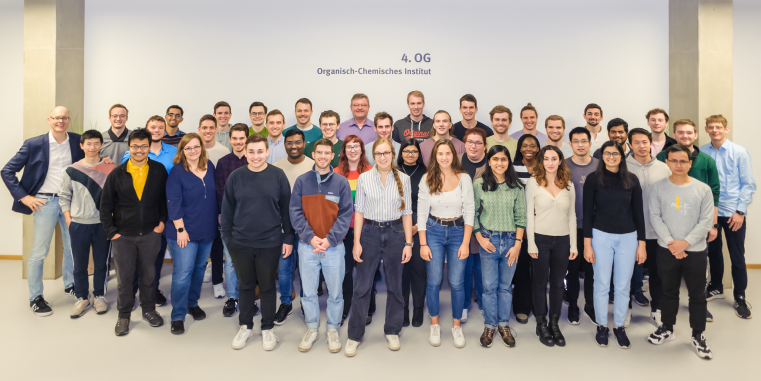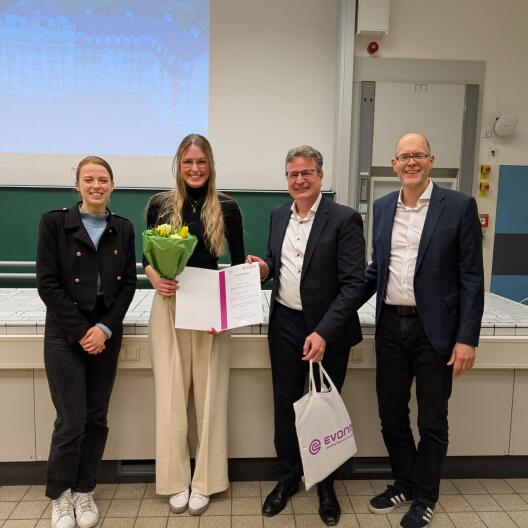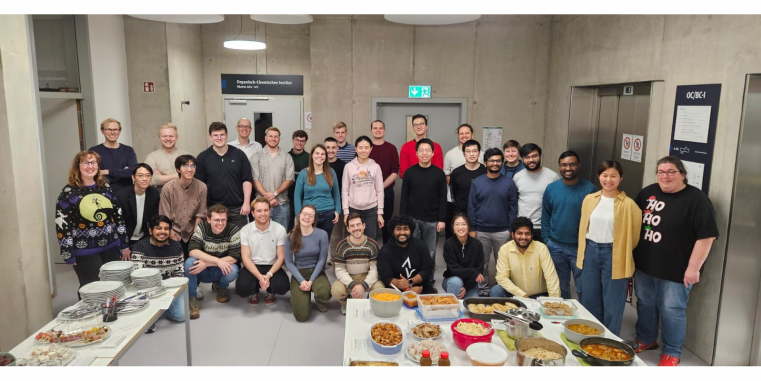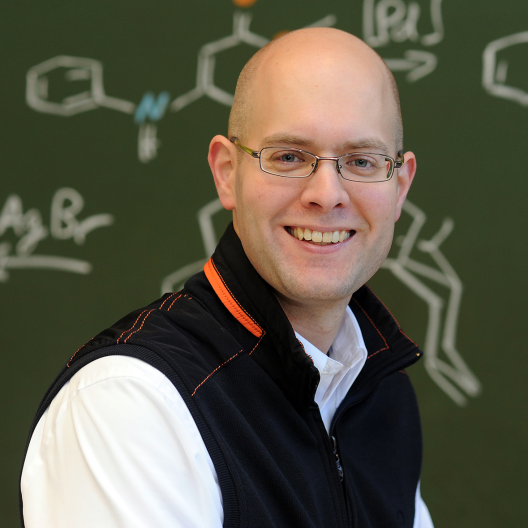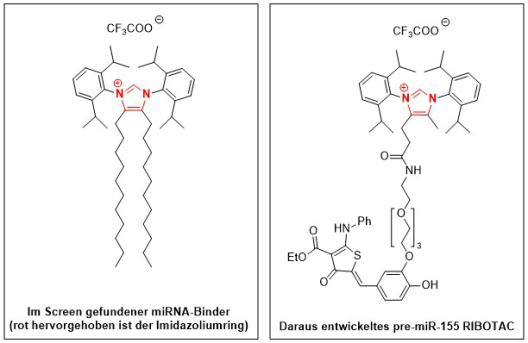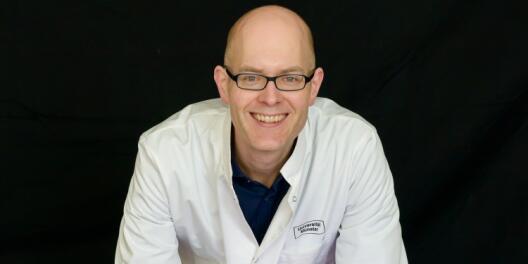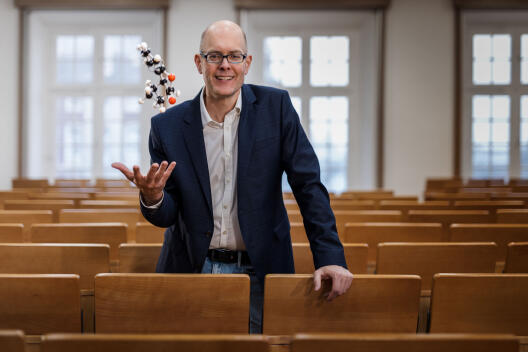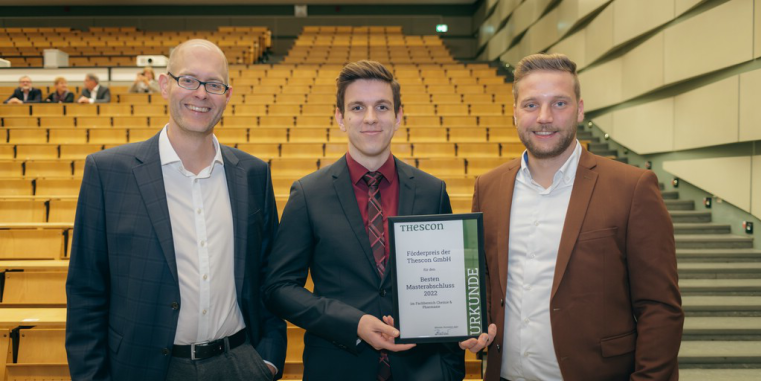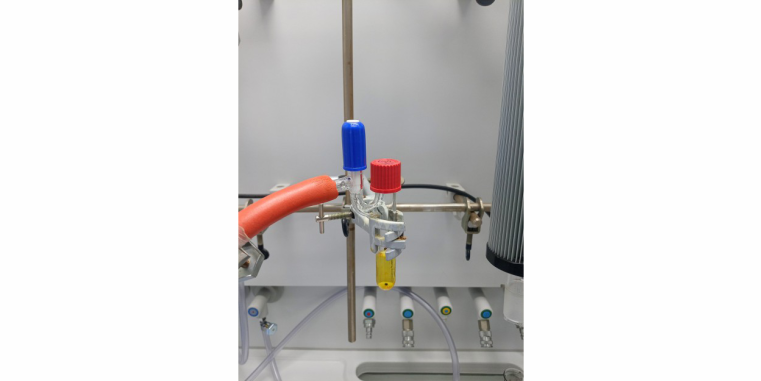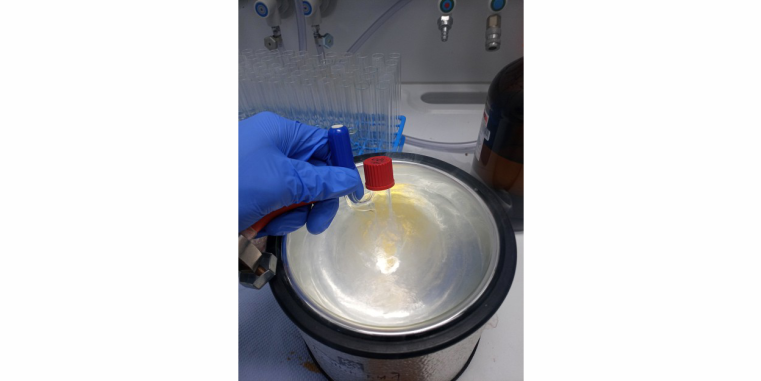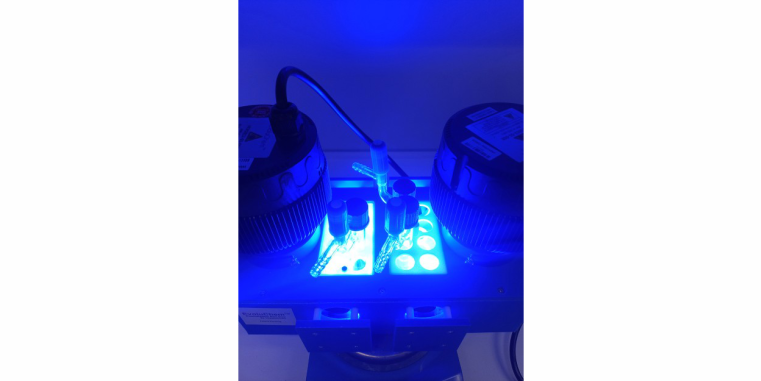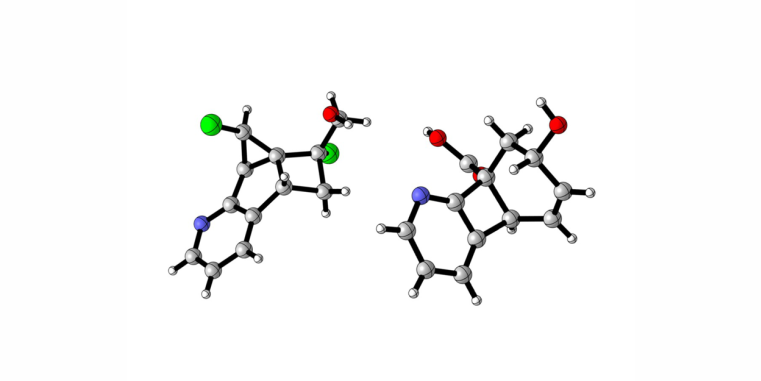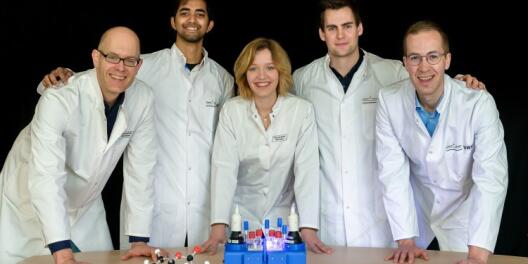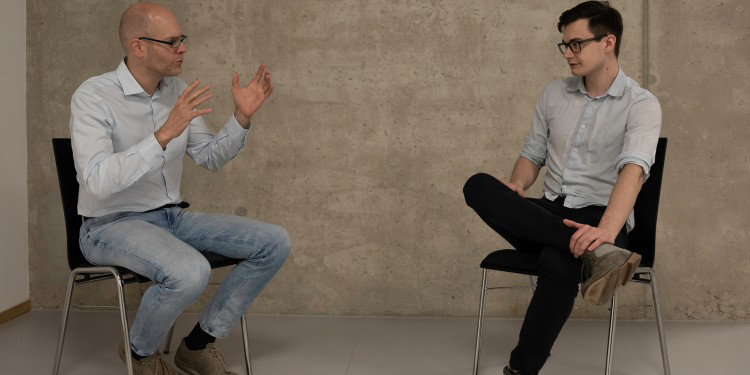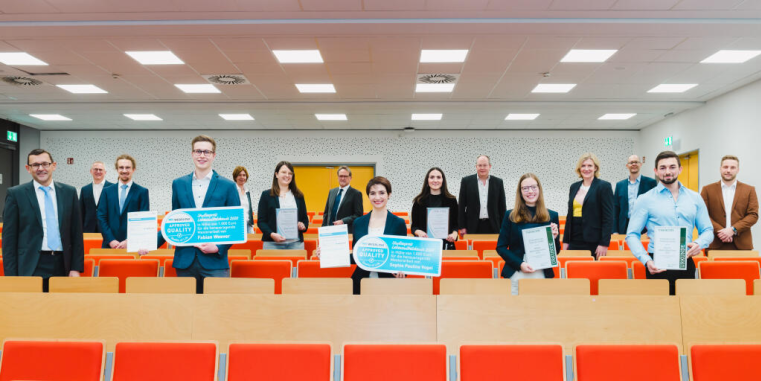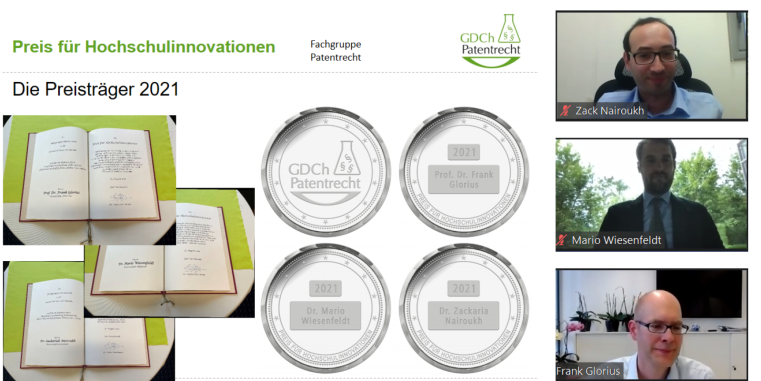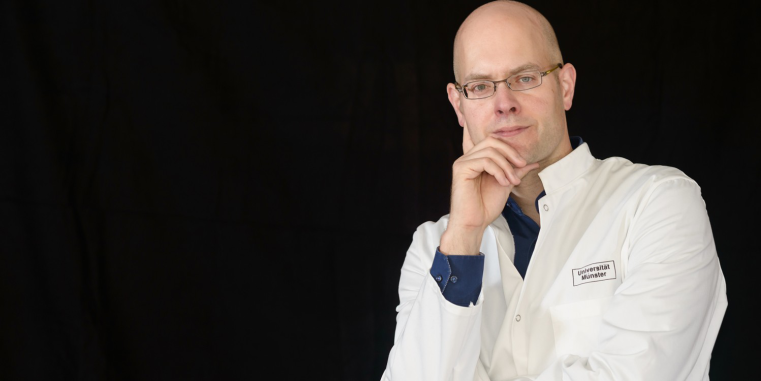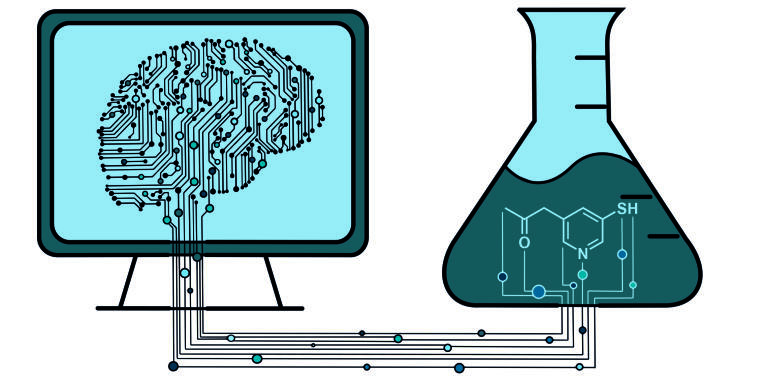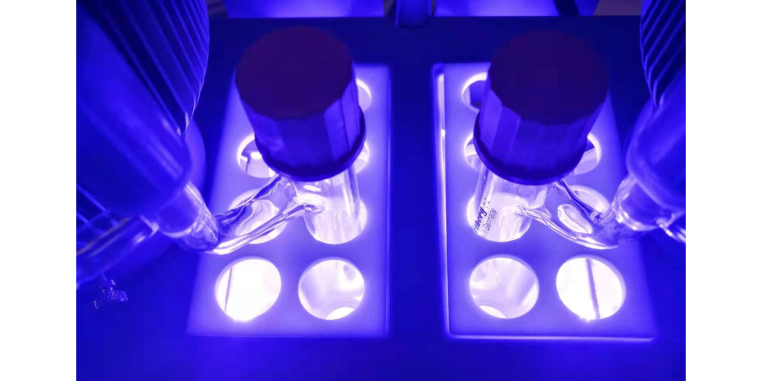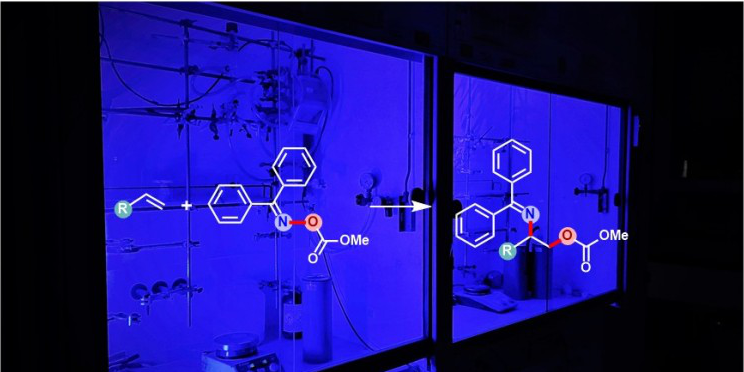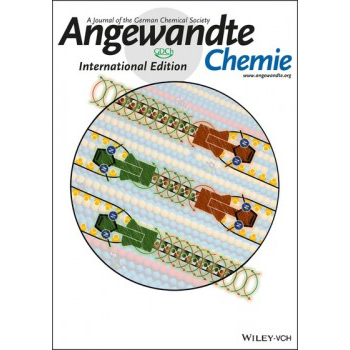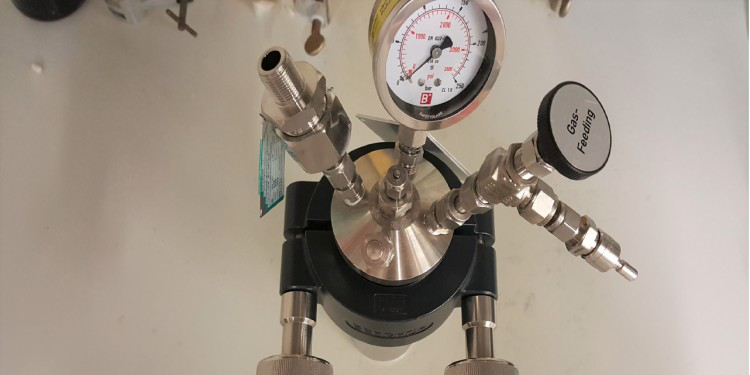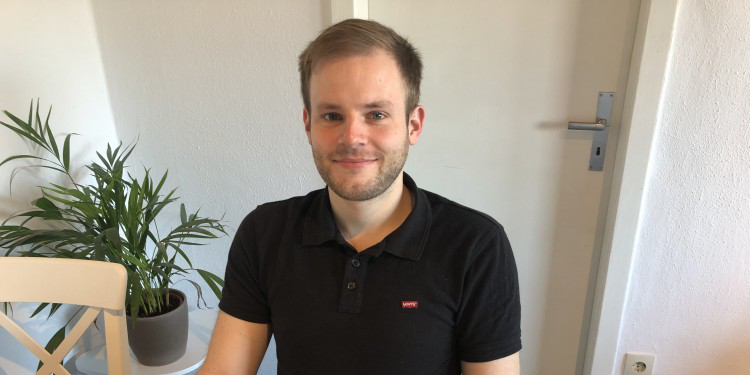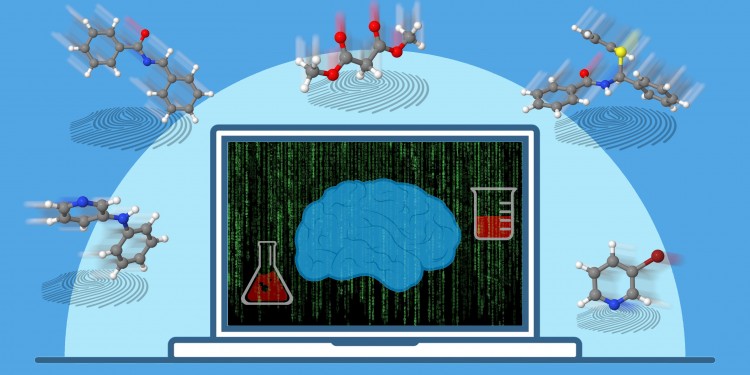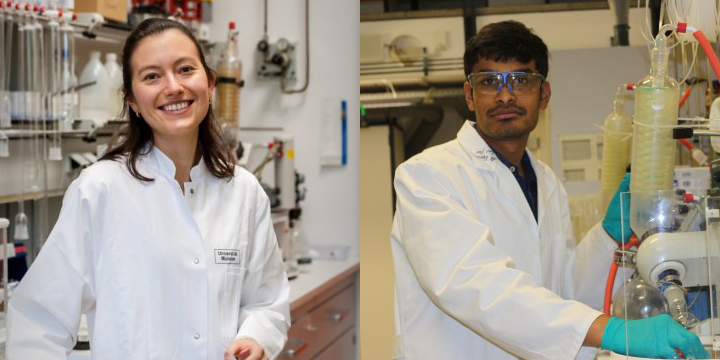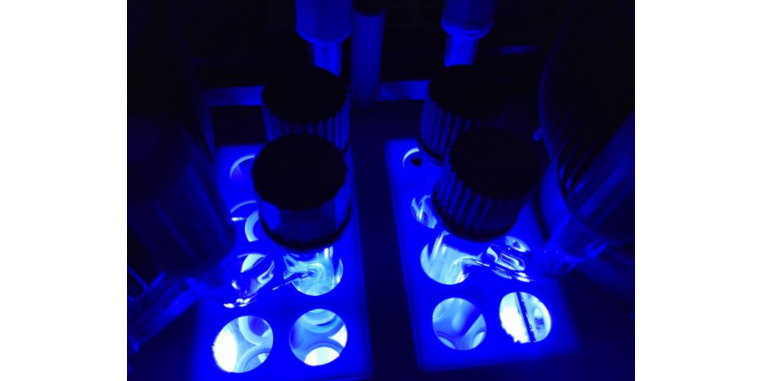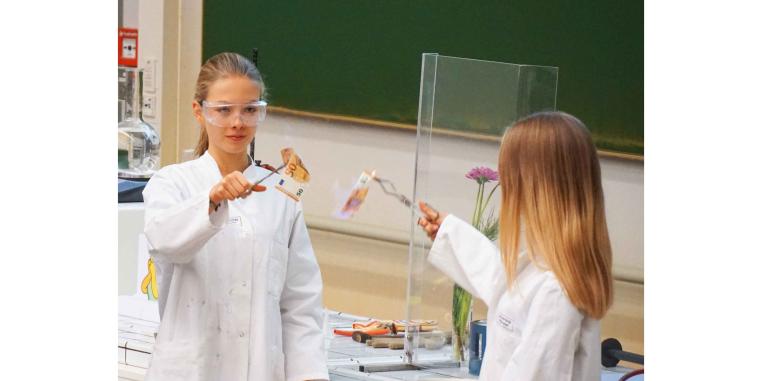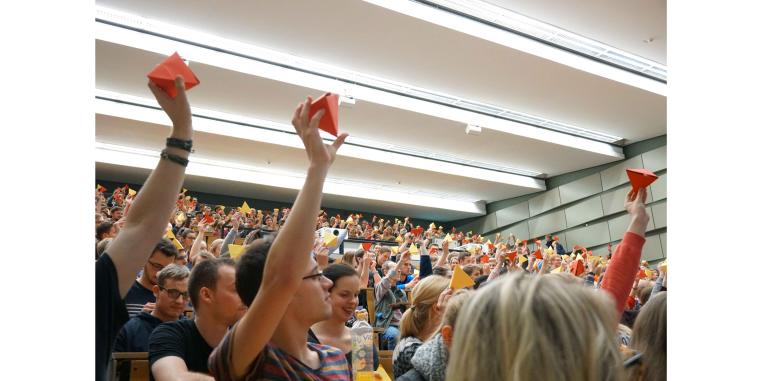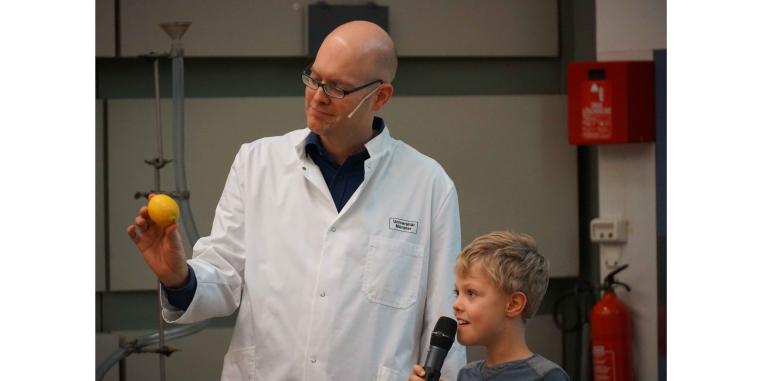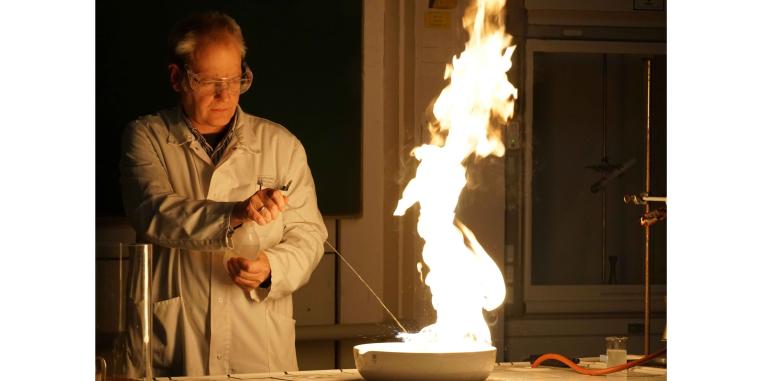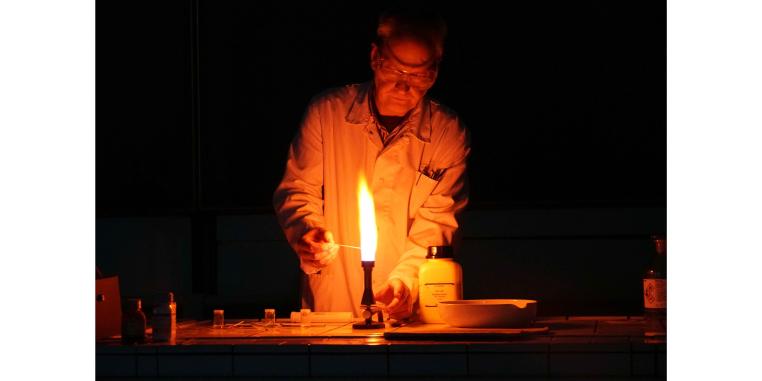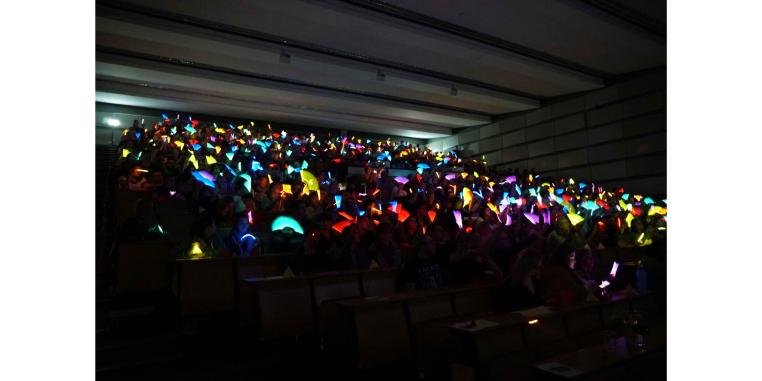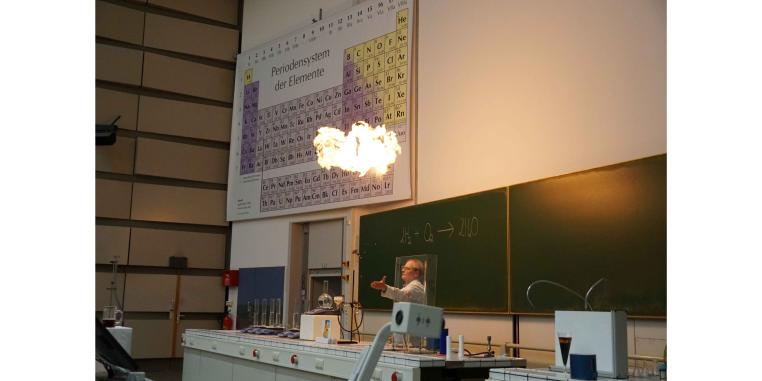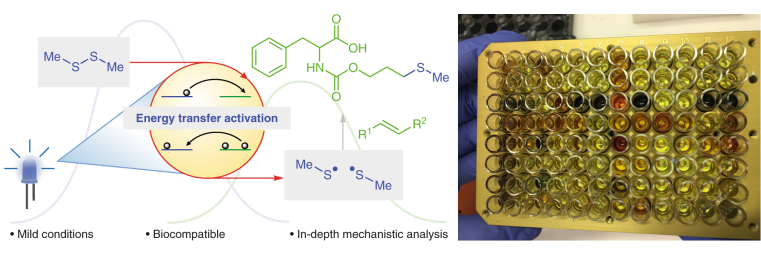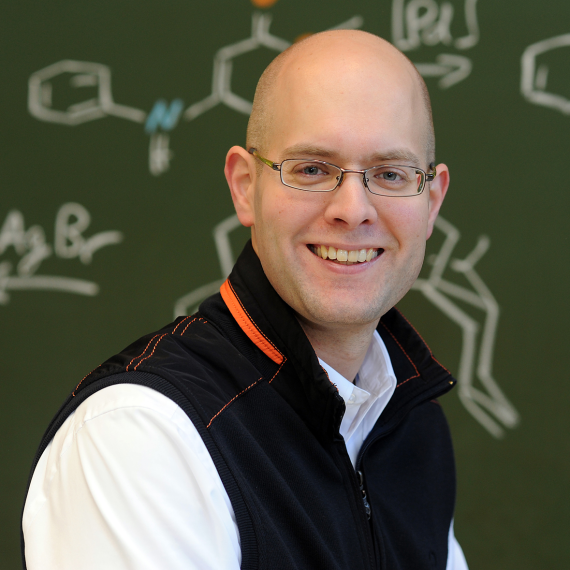News Archive
October 2015
After women power, now follows...men power. Dr. Eric Standley (USA), Felix Klauck (Germany) and Santanu Singha (India) have just joined the group. All the best for your start and: Welcome!
September 2015
Great news! Thomson Reuter has just announced the 2015 Thomson Reuters Highly Cited Researchers - based on data analysis of the 1% most highly cited papers. Once again, the Glorius group has been included in this list, a great honor. Congratulations to everyone!!!
August 2015
Women power! Dr. Lisa Candish (welcome back!), Lena Pitzer and Satobhisha Mukherjee have just joined the group. All the best for your start and: Welcome!
July 2015
Recently, many exciting manuscripts have been accepted for publication. Please, take a look at the updated publication list. To mention only three highlights:
- NHC-organocatalysis: our most recent highly enantioselective conjugate umpolung of α,β-unsaturated aldehydes will appear in Nature Chem. soon. Valuable product motifs result, the reaction proceeds by a challenging dearomatization and the reactivity can be switched (formation of 6-membered vs. 5-membered rings). What more do you want?
- NHCs in membranes? Our first joint paper with Prof. Galla on tailormade NHCs for applications in membranes has appeared. This exciting development might lead to a new field of application of NHCs.
- sp3-C-H activation! We have achieved the first Rh(III)-catalyzed C-H activation of an unactivated sp3-C-H bond, providing new opportunities!
Congratulations everyone!
July 2015
"Win some, lose some." Hiroshi Osaki, a PhD student from Shigehiro Yamaguchi's group at Nagoya University, Japan, has joint us for two months - working on an exciting collaborative project involving fluorescent molecules. On the other hand, Fabian Lied, a second year PhD student from our group, has moved to Mark Lautens' group at the University of Toronto, Canada. As a member of the IRTG 2027, Fabian is working a joint project in the field of C-H activation for the next 4 months. For both of you, good luck and have fun!
July 2015
Our annual Summer party took place on 18th of July and was a great success! Perfect weather, a beautiful spot and fun people - we had a great time. Thanks for all the many former group members and partners who made the party really special - and for all the many helping hands. THANK YOU!!!
May 2015
We are proud to announce the successful securing of two attractive academic positions by two group members, Dr. Angelique Ferry and Dr. Junlong Li. In a very competitive selection process, Angelique Ferry came out top and was offered a position as Maître de conférences at the University of Cergy-Pontoise (close to Paris). Congratulations! We will continue to enjoy the final weeks together with you and wish you all the best for the time back in France.
Similarly, Dr. Junlong Li has recently moved on back to China in order to become a Full Professor at the Sichuan Industrial Institute of Antibiotics (SIIA) of the University of Chengdu! Congratulations once again!
We look forward to your steep academic career and our continuing friendship!
March 2015
NaCl? Is it possible to use table salt as catalyst? It is! Please, check out our most recent direct functionalization. Simple NaCl allows the efficient trifluoromethylthiolation of aromatic N-heterocycles such as pyrroles and indoles - transition metal-free! This method should prove especially valuable for applications in the pharmaceutical and agrochemical industry. Well done, Roman and Johannes!
February 2015
Two great talents! Two former postdocs who are now full Professors back in China have been selected for the prestigous "Thousand Talents Program". Prof. Honggen Wang from the School of Pharmaceutical Sciences of Sun Yat-sen University and Prof. Da-Gang Yu from the College of Chemistry of Sichuan University have both been selected in a very competitive procedure. This is a great honor and makes all of us proud! The Thousand Talents support will help them to rapidly build up an internationally visible research program. Congratulations, so well deserved!!!
February 2015
C-H Functionalization rules! Please, take a look at our most recent manuscripts that were just accepted by Angewandte Chemie (Zhao et al. and Vásquez-Céspedes et al.), JACS (Schröder et al.) and Chem. Sci. (Collins et al.). All four papers focus on challenging C-H functionalization reactions: the Co(III)-catalyzed C-H activation to form exciting fluorescent molecules (Zhao et al.), the Rh(III)-catalyzed C-H halogenation of electron-rich heterocycles (Schröder et al.), revealing a surprising dual role of the catalyst. In addition, two other valuable transformations were realized under heterogeneous conditions: the C-H arylation of pi-extented arenes (Collins et al.) and also the sulfenylation of heteroarenes (Vásquez-Céspedes et al.). We are excited about this work and hope that these transformations will prove to be synthetically helpful. Congratulations everyone!!!
December 2014
"Drei auf einen Streich!" Please, take a look at our three most recent manuscripts that have just appeared in Angewandte Chemie (Zhao et al.) and in JACS (Guo et al. / Yu et al.). We report on our most recent successful attempts of switchable, highly asymmetric organocatalysis, of Co(III)-catalyzed C-H activation and of the formation of valuable aminoindoline products by Rh(III)-catalyzed C-H activation. Congratulations everyone!
Frank Glorius was just awarded the "Goldener Brendel", the award for excellent teaching at the Department of Chemistry & Pharmacy. The award decision is based on the evaluation records of lectures and the decision is made by the students. Congratulations!
November 2014
This is great news! The Master thesis of Christoph Schlepphorst was selected for inclusion in the Springer "BestMasters" program. With "BestMasters" the publisher Springer is featuring the best Master theses, prepared at renowned universities in Germany, Austria and Switzerland. These theses were given the best marks and were recommended by referees. Congratulations Christoph!!!
September 2014
Dr. Wei Li and Dr. Xiaoming Wang started their research stay in the Glorius group, both awarded with a Humboldt-Fellowship. Congratulations, Wei and Xiaoming! Both will spend two months on a German language course in November/December 2014.
September 2014
In the last weeks, Lisa, Kim, Adrian, Wei and Xiaoming have arrived in order to join the group. All the best for your start and: Welcome!
September 2014
Frank Glorius has started his Novartis Chemistry Lecture Tour. The first two trips will bring him to the US sites of Novartis (San Diego, San Francisco, Boston). In addition he will also visit Scripps, UC Berkeley, Harvard University and MIT and other places, giving a total of nine talks. A great time to meet friends and to talk science!
July 2014
Summer time - conference time! You can meet members from the Glorius group at the following conferences: Trilateral symposium MS-SH-HK in Hong Kong/China; 2nd International Symposium on C-H Bond Activation (ISCHA) in Rennes/France; International Symposium on Homogeneous Catalysis (ISHC) in Ontario/Canada; 14th Belgian Organic Synthesis Symposium (BOSS) in Louvain-la-Neuve/Belgium; International Symposium for Advancing the Chemical Science ISACS14 (Challenges in Organic Chemistry) in Shanghai/China; 8th Asian European Symposium on Metal-Mediated Efficient Organic Synthesis (AES MMEOS) in Iztech/Turkey; ORCHEM in Weimar/Germany AND the Reaxys Inspiring Chemistry Conference in Grindelwald/Switzerland. Hope to see you!
June 2014
Thomson Reuters has selected Frank Glorius as one of the 2014 Highly Cited Researchers for ranking in the top 1% most cited papers in the field of chemistry. This distinction was determined after examining the top 1% cited papers published in Thomson Reuters Web of Science Core Collection during an 11-year period spanning from 2002 to 2012. In total, only about 3000 individuals worldwide from all disciplines were selected as 2014 Thomson Reuters Highly Cited Researchers. Congratulations to all former & present group members! Keep going!
Congratulations to Michael Schedler for being selected as finalist for the 2014 Reaxys PhD Prize. Of nearly 540 submissions from around the world, 45 finalists were selected and will meet for the final selection at a Chemistry Conference in Switzerland in September. We keep our fingers crossed! Go NHC organocatalysis!
March 2014
Frank Glorius was selected for the prestigious Novartis Chemistry Lectureship Award 2014/15. Congratulations!
Frank Glorius went on an exciting trip to China, in order to visit some of the worlds premier institutions for Chemical Research: the Shanghai Institute of Organic Chemistry-CAS (SIOC), Nankai University and Peking University (PKU). He will give talks and meet old and new friends.
December 2013
Dr. Mélissa Boultadakis-Arapinis has received the prestigious "Prix solennel de la Chancellerie des Universités de Paris" award for her PhD work! This is very well deserved and constitutes a big encouragement for the future. We are proud and very happy for her. Congratulations!!!
November 2013
Dr. Olga García Mancheño has become Associate Professor of Chemistry at the University of Regensburg: Congratulations!!! This is so well deserved and we are happy for you, but also miss you a lot! All the best for your future, Professor Garcia Mancheno!
September 2013
Dr. Honggen Wang successfully finished his postdoctoral stay in our group and has just started his new position as an Associate Professor at Sun Yat-sen University. Congratulations on your new position at this excellent University!!! With this, Honggen is following several other former group members, who have recently started their own independent academic careers: Raphael, Keiichi, Congyang, Ranganath, Tatiana, Biju, Xavier, Frederic, Joanna, ... Have fun and all the best for all of you!
August 2013
Dr. Olga García Mancheño has received an offer (Ruf) for an Associate Professorship at the Universität Regensburg! This is very well deserved and we are very happy for her. Congratulations to her and her team!!!
July 2013
Congratulations to Dr. Olga García Mancheño and Dr. Karl Collins, who both received prizes at the 2013 European Symposium of Organic Chemistry in Marseille.
Olga received the ACS Catalysis Oral Communication Award for her excellent presentation, and Karl was awarded the Thieme Poster Prize.
June 2013
Please, check out our most recent publications: several quite exciting manuscripts on asymmetric hydrogenation, C-H activation chemistry and reaction methodology have recently been published. Congratulations everyone!
In addition, we are very happy that our benzothiophene arylation work (J. Am. Chem. Soc. 2013, 135, 7450; Congratulations Daniel and Karl!) was the most accessed paper of JACS during the last month and that it was also highlighted by Nature (Nature 2013, 498, 275). Please, check it out!
Finally, we are also very happy to have received so much positive feedback on our robustness screen (Nature Chem. 2013, 5, 597; Congratulation Karl!) and also to see it highlighted in the news & views section of Nature Chem. by an insightful article of Ian Churcher: Nature Chem. 2013, 5, 554.
Congratulations everyone and: Keep on going!
May 2013
Two of our manuscripts have made it into Angewandtes most recent "most cited" list. Articles on this list are the most frequently cited ones among those published in 2010 or 2011. They have contributed the most to the journal's impact factor in 2012.
Thomas Dröge, Frank Glorius,
The Measure of All Rings—N-Heterocyclic Carbenes [Minireview],
Angew. Chem. Int. Ed. 2010, vol. 49, pp. 6940–6952.
and
Frederic W. Patureau, Tatiana Besset, Frank Glorius,
Rhodium-Catalyzed Oxidative Olefination of C-H Bonds in Acetophenones and Benzamides [Communication],
Angew. Chem. Int. Ed. 2011, vol. 50, pp. 1064–1067.
Congratulations everyone!!!
May 2013
For three months each, Dr. Dennis Köster (short postdoctoral stay; formerly PhD student in group of Prof. Werz) and Mr. Matthew Lindale (exchange PhD student from the group of Prof. Liebeskind) have joined our group. We are excited about their arrival. Good luck and have fun!
May 2013
Please, check out our most recent publications: several manuscripts, we are very excited about, just appeared online! Congratulations to all contributors!!! And four more exciting manuscripts are under minor revision at the moment, so please, keep your fingers crossed!
April 2013
Nils Schröder has just started a 6-month stay in the group of Prof. Kenichiro Itami at Nagoya University, Japan.
January 2013
A few days ago the Deutsche Forschungsgemeinschaft (DFG) announced the winners of the Leibniz-Award 2013, "Germanys most important research award."
....and the Leibniz goes to... us!
This is a great honor for all present and past group members, CONGRATULATIONS!!!
Dezember 2012
Please check this out: Two of our recent Angewandte Chemie manuscripts already made it among the "25 Most Accessed" papers of the last 12 months (11/2011 - 10/2012), with the Asymmetric Hydrogenation paper even being at the top of the list(!):
N. Ortega, S. Urban, B. Beiring, F. Glorius,
Ruthenium-NHC Catalyzed Highly Asymmetric Hydrogenation of Benzofurans,
Angew. Chem. Int. Ed. 2012, 51, 1710-1713; Angew. Chem. 2012, 124, 1742-1745.
http://onlinelibrary.wiley.com/doi/10.1002/anie.201107811/abstract
N. Kuhl, M. N. Hopkinson, J. Wencel-Delord, F. Glorius,
Beyond Directing Groups: Transition Metal-Catalyzed C H Activation of Simple Arenes,
Angew. Chem. Int. Ed. 2012, 51, 10236-10254; Angew. Chem. 2012, 124, 10382-10401.
http://onlinelibrary.wiley.com/doi/10.1002/anie.201203269/abstract
Link: http://onlinelibrary.wiley.com/journal/10.1002/%28ISSN%291521-3773/homepage/2002_mostaccessed.html
Similarly, our most recent Organic Letters paper made it among the top 5 "Most Read Articles" of the last 12 months:
F. W. Patureau, C. Nimphius, F. Glorius,
Rh Catalyzed C–H Activation and Oxidative Olefination without Chelate Assistance: On the Reactivity of Bromoarenes,
Org. Lett. 2011, 13, 6346-6349.
http://pubs.acs.org/doi/abs/10.1021/ol202557w
Link: http://pubs.acs.org/action/showMostReadArticles?topArticlesType=recent&journalCode=orlef7
Congratulations to everyone!!! And, please, check them out!
November 2012
Dr. Da-Gang Yu and Dr. Dongbing Zhao were awarded as Humboldt-Fellows at the same day. Congratulations, Da-Gang and Dongbing! Both will spend 2 months on a German language course during the first weeks in 2013.
November 2012
Dr. Da-Gang Yu joined the Glorius group as postdoctoral research fellow. Welcome Da-Gang!
Oktober 2012
Dr. Dongbing Zhao joined the Glorius group as postdoctoral research fellow. Welcome Dongbing!
Oktober 2012
Dr. Matthew N. Hopkinson, who has recently started in the Glorius group as a postdoctoral research fellow, was awarded as Humboldt-Fellow, and is now spending 2 months on a German language course. Congratulations Matt!
September 2012
Michael Schedler was awarded with a price for his oral communication on the "International Conference Catalysis in Organic Synthesis" (ICCOS 2012) in Moscow, Russia. Congratulations!
August 2012
Dr. Karl Collins joined the Glorius group as postdoctoral research fellow. Welcome Karl!
July 2012
Science Watch: Our C-H activation work was kindly highlighted online. Please, take a look!
February 2012
Slawomir (Slawek) Urban was awarded with the Procter & Gamble Award of the JungChemikerForum Münster. The ceremonial lecture was given by Prof. Georg Schwedt, University of Bonn:
"From Sugar to Spicery - Food Chemistry Experiments with Supermarket Products". Congratulations!
November 2011
Christoph Grohmann had recently finished a Japanese languague intensive course at the LSI Bochum and has started his 6-month stay in the Tatsumi group in Nagoya/Japan.
November 2011
Dr. Zhuangzhi Shi has recently started research in the Glorius group as a Humboldt fellow, after spending 2 months on a German language course. Welcome Zhuangzhi!
July 2011
Thomas Dröge was awarded with the Poster Prize of Catalysis Science & Technology at OMCOS 16 Conference (Shanghai, PR China). Congratulations!
